Clifford Sherman pays it forward with computers for L.G. Pinkston High School seniors
West Dallas’ Ledbetter school on Gentry Drive was where Clifford Sherman began his education as a first-grader, and it’s where he gave this interview — though the school is now Voice of Hope Ministries’ center. He moved from one segregated school to another in third grade, and finished his education at L.G. Pinkston High School in 1969, before the federal courts ordered Dallas schools to desegregate in 1971. He learned the inner workings of computers in the 1970s before desktops were invented, and eventually started his own computer business. Now, he gives back to his alma mater by donating computers to graduating seniors.
The following interview with Clifford Sherman was conducted and transcribed by high school students as part of a community interviewing course at Voice of Hope Ministries and through the Scripps Howard Foundation Emerging Journalism Program at University of North Texas’ Mayborn School of Journalism. Both efforts are linked to Dallas Free Press’ journalism pathway from high schools to newsrooms. Learn more and support these efforts.
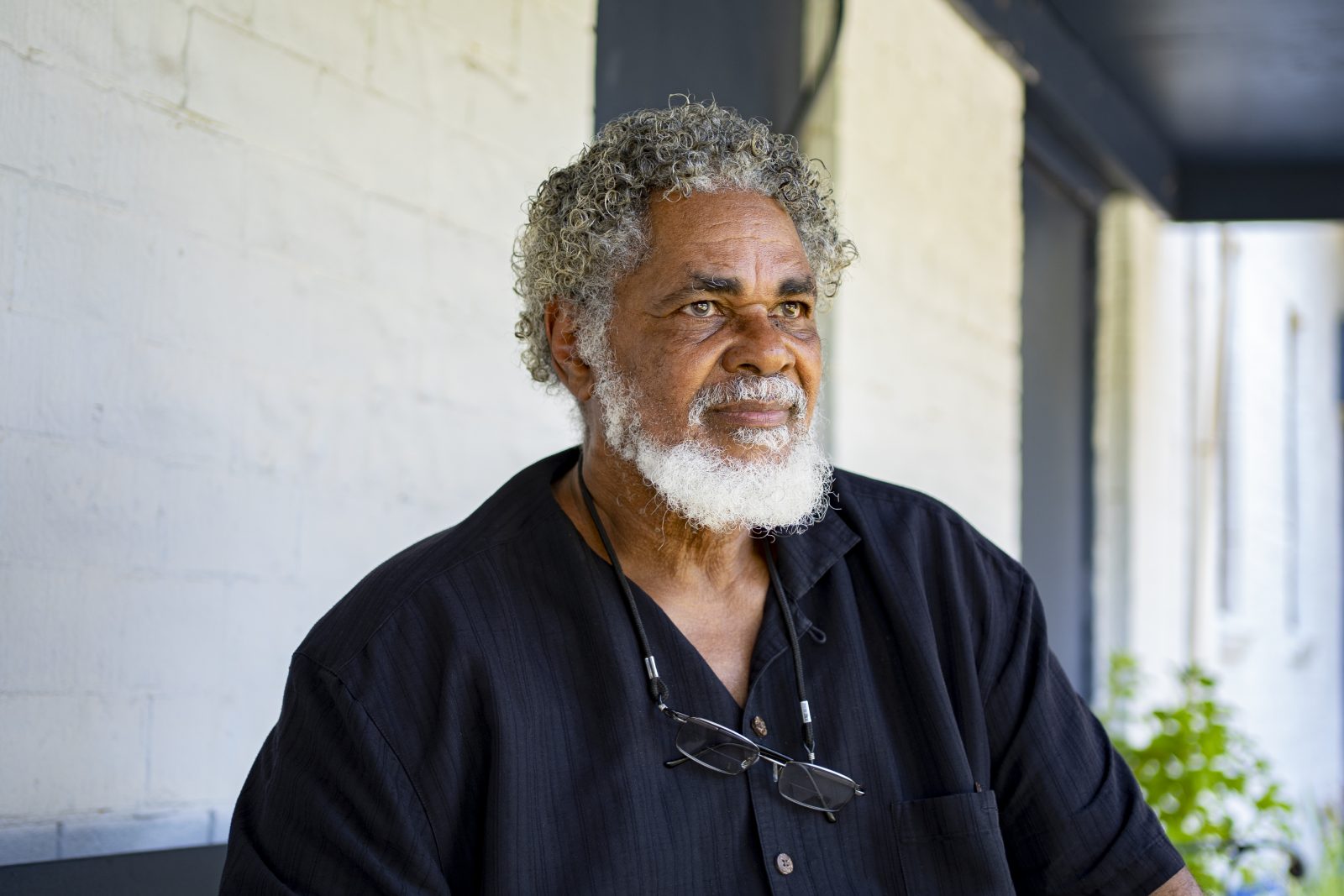
I was raised in West Dallas. Matter of fact, I started out about seven blocks that way [points toward the east], and I went to school here, first and second grade. This was Ledbetter Junior High School; it went from the first to eighth grade. This building and the little buildings right there, the one on the outside, that’s where I spent the first and second grade.
Then in the third grade, Irving ISD took this part, and right down the middle of Pringle Drive, on the other side, everybody had to go to Carver Elementary. So instead of coming six, seven blocks here, I had to go all the way across Westmoreland and through the projects to go to the third grade. It took about 30 minutes. They didn’t have buses for us. We walked. And when I finished, I went to Sequoyah [Junior High]. You know where they’re building a new Pinkston High School? Bickers and Holystone? Carver was on one side, Sequoyah was on the other side. It took down two buildings to build the new Pinkston. And I graduated from Pinkston in 1969.
I went to GM as a mechanic. General Motors trained mechanics. And at the time, Van Winkle Pontiac sponsored me into the school. So I spent January ’69 to probably June ’70 training, then I went to work for Van Winkle Pontiac. And I stayed there for a while. Kind of hard being the only Black person on the line. Lowest pay. And so I went back to school. I went to Control Data Institute to learn computers. I worked on mainframes. Pretty soon I was growing into the computer world.
Things changed. Probably in about ’76, ’77, they come out with a desktop. At the time I was still working in mainframes for storage technology. I didn’t like it. I went to school for one thing and ended up being in a warehouse working on them instead of being out servicing the computers. Big business, [me] being Black, they didn’t want that. So I worked for them for a while and decided to start my own business. I went into business with a friend of mine at a used car lot. When I left there, another friend started an adjustment service, which, when a house catches on fire or a storm, the adjustors go out and write it up for them and work against the insurance company to get you the most money.
From there I started a remodeling company. So I learned every stick, every piece of wood that was in the building. If it’s not there, why wasn’t it there? I knew where it was supposed to be. I learned plumbing, I learned electrical, I learned air conditioning and heating. I got to know all of this in prices. So we developed a price list. (Now you can get them on computers, the price list of what it should cost to get it fixed.)
I stayed with that until 1985, when I started a computer company. It was just a little small company that went out and repaired computers. I got three or four contracts with different banks and different buildings, and I would build specialty computers. In other words, if you was an architect, you couldn’t go into the store and buy you a computer that would actually do the work. So I would build it. See, your computer would need a better hard drive, lots more memory and a better video card, not just something that’s on the board. So we would build it according to what they needed. I would add as much RAM as I could and, hey, a 500-gigabyte hard drive was as large as it was when I first started. And I would always find the software that they needed and install it on the computer.
Now, basically what I do is, I give away computers. I give away laptops to Pinkston seniors going off to a four-year college. They fill out the paper and write an essay, and it’s about six of us that read the essays and choose. On average, we’ll give away five to 10 laptops. Depending on how much money I get in, I buy laptops and printers, and I give them away.
I wanted to help. I know we didn’t have any help when we left school. So it was something that I just chose to do since I was already building computers. So I feel like I can share what I learned with the students to help them.
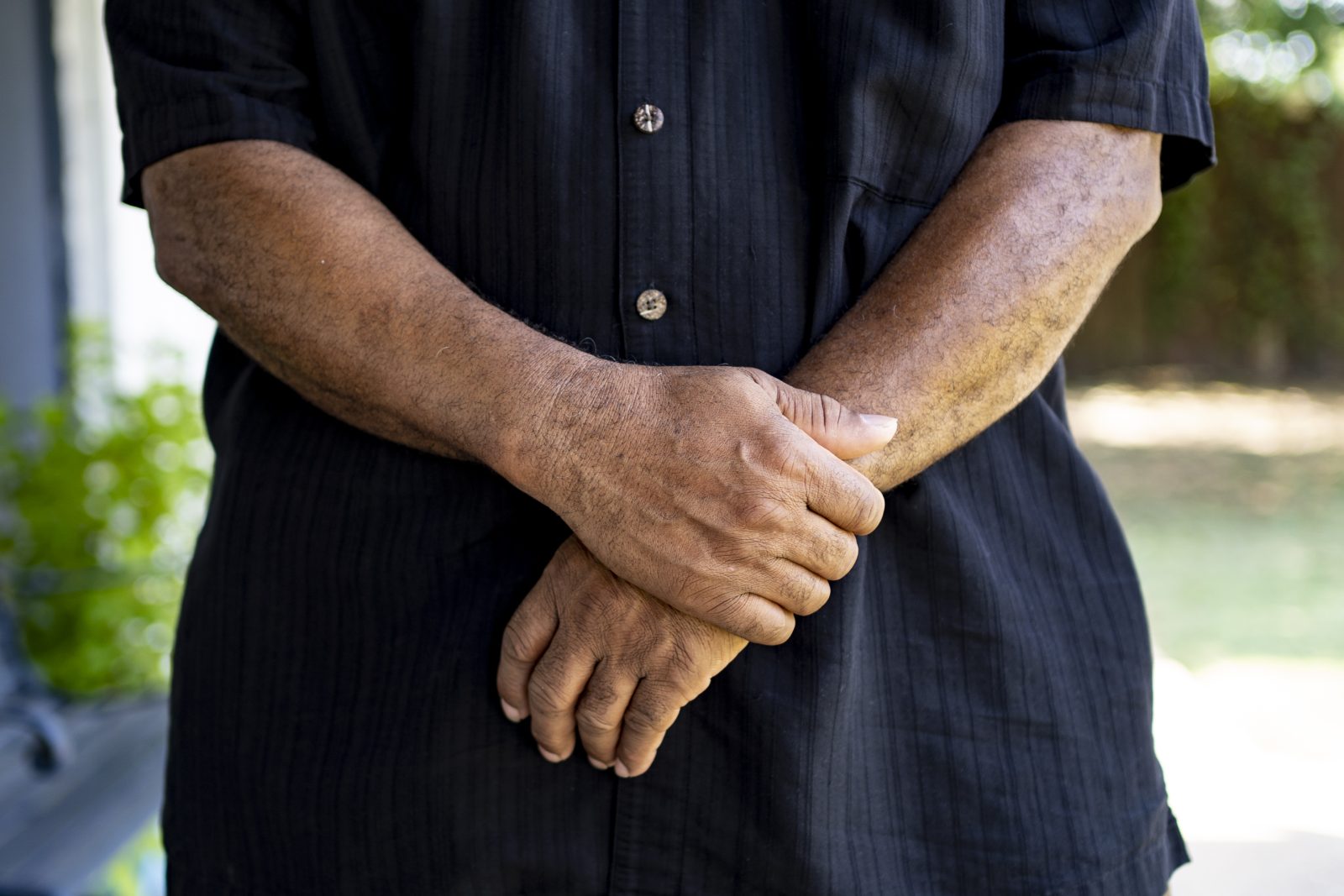
I’ve stayed in West Dallas for a long time. I enjoyed every bit of it, as a kid especially, because I didn’t know any better. When you don’t know, you enjoy yourself. We’d fish, and I learned to swim in that little bayou dock out there. We’d take a boat and go across the [Trinity] River, ride the horses that were running wild across there, and pick a bunch of wild grapes. You ever see the wild grapes growing on the fence line? Well, we made grape juice, made grape jelly — hey, Grandma used to make grape wine out of it. But it’s just things that grow in the wild, that’s part of your knowledge.
I learned West Dallas. I grew up here. So I’ll come back here. Because it’s still my home. No matter how I look at it. We still own the house at 3725 Vineyard. And my mother’s been gone now since 2017. I have lots of family that stayed in West Dallas. I used to go to Norco [Street]. I had a first cousin stay on Norco. And another cousin on Leesburg, another cousin on Shadrack. I’m old myself, but they were older than me.
In essence, where you’re from, and where you’re raised, there’s something about those places, there’s always a connection to you. So the longer you hold on to it, it holds you to be humbled to where you’re from, and it helps you grow. Because now you got roots, and the roots that you create, no matter where you go, you can create some more.
I’ve stayed in Seattle, I’ve stayed in St. Louis, I’ve stayed in Washington, I’ve stayed in a bunch of places in the country. And I’ve been in lots of countries; I’ve never been in the service. I like Hawaii. I like Japan. I’ve been to England, been to France. On my last big trip I went to Germany. I usually go on trips every year, somewhere out of the country.
Then I have to come back home and see, basically, the same thing that I left. Because what’s going to change? Until we decide there’s change. Black and brown people are hunted by policemen. You learn that. There’s nothing we can do but fight the system. Hey, best thing you can do if one pull you over while you’re driving — “Sir, show me your driver’s license.” Be polite. And leave. Let them give you a ticket so you can go. But if you are angered by anything that they do, no telling what might happen. A ticket — you can go to court and pay it.
As I was growing up, I used to walk by a tree that’s between Aransas and Westmoreland. You know where Jerry’s Market is? There’s a tree out in that field. I’ve seen more dead bodies leaning against that tree. And we always said the police killed them. But as a kid, you walk by it since you’re going to school. Nothing you can do about it. And you know, West Dallas used to be a place where every 15 minutes, the sirens would be going on, police flying up the street, gunshots. It has changed somewhat. It’s something that you would get used to — hearing the sirens, hearing the gunfire — but it’s not something that you want to be a part of.
I like teaching computers. I used to take in three or four people and teach them drywall, teach them plumbing. I’ve taught air conditioning and heating. Some of the kids in the neighborhood, I would teach them a bunch of mechanics. And then, like I said, I did remodeling, so I would let kids come in and we’d play with sheetrock. Just something for them to do to make some money. And I’m not in a hurry; I let them experience the work so that they know what they’re doing. Even when they get home and they knock a hole in the wall, they know how to fix it. So Mama don’t get mad.
A lot of us don’t realize what our purpose is until it’s too late. Some people never understand what their purpose is. And mine is to learn and to give back what I know, any way I can. And most people will say the same thing. It’s to give back what they’ve learned so that the next generation can take from what we understand and build upon it.
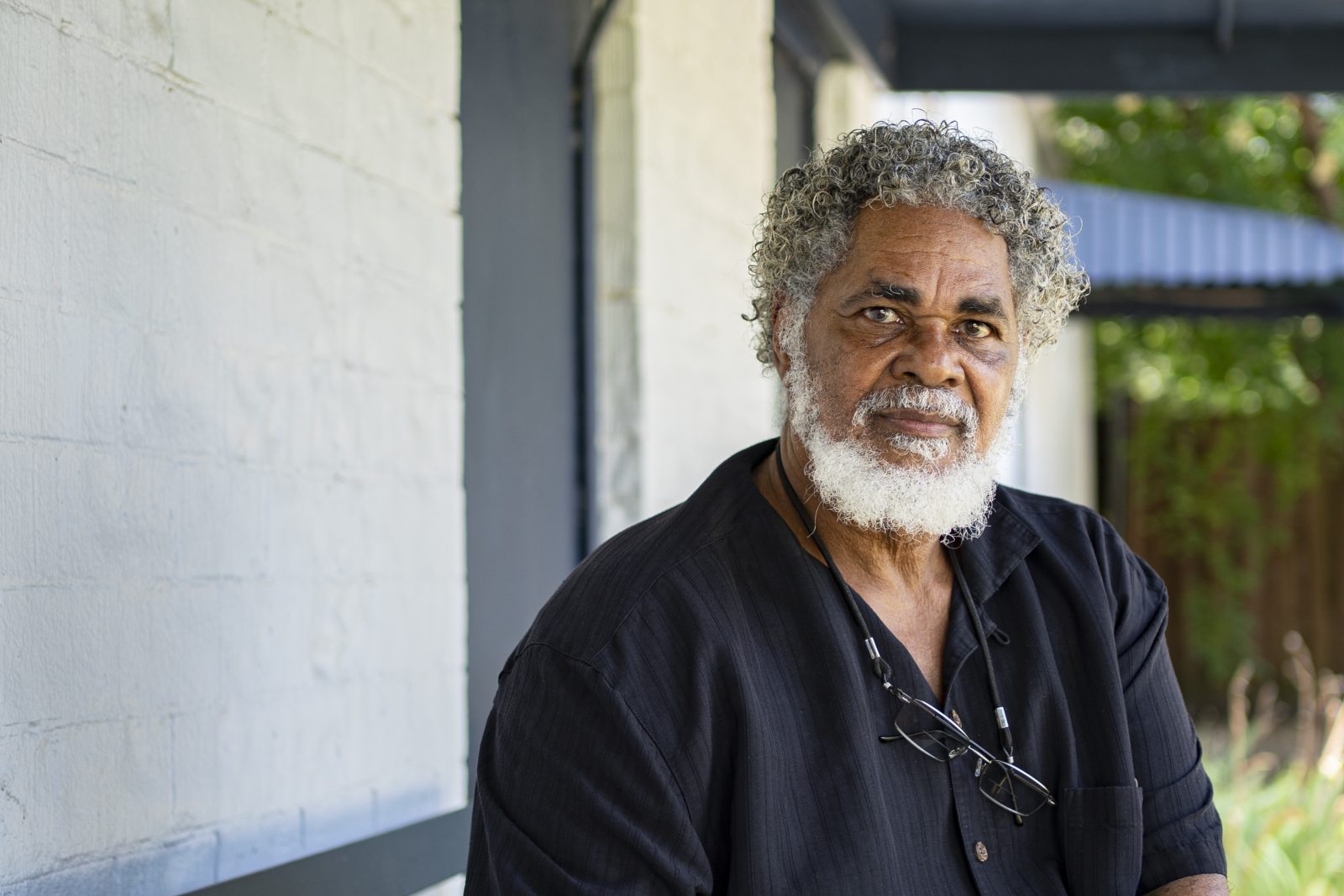
Ice Cream Social Scholarship Fundraiser
What: One scoop with two toppings for $2
When: Saturday, Aug. 27, 1:30-4:30 p.m.
Where: Vecinos Unidos, 6303 Winnetka Ave.
Why: For laptops and printers given by Clifford and Joyce Sherman to L.G. Pinkston High School seniors graduating to four-year universities
This interview has been edited for brevity and clarity with careful efforts to retain the original voice. Interview conducted by Alexis Garcia and Fatima Syed.

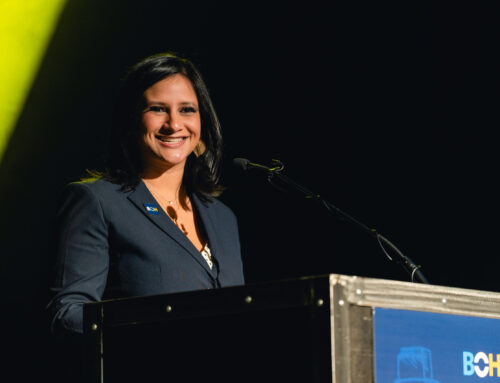
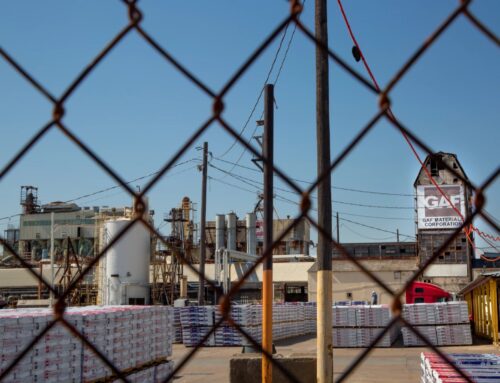
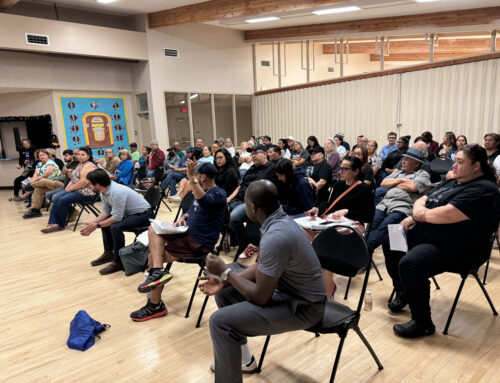
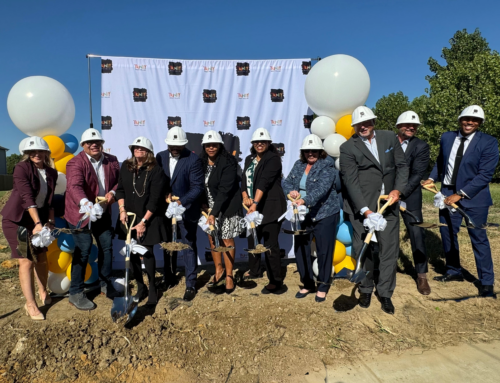
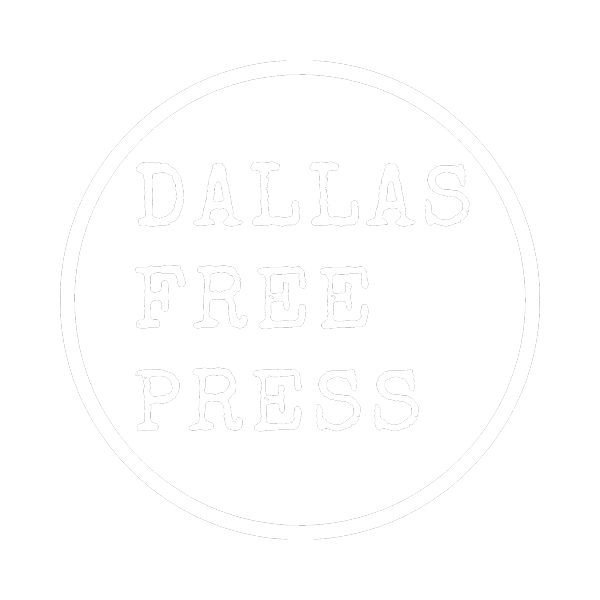
misleading title since he doesn’t give to ALL seniors but only to 5 maybe 10 seniors. but good for him. I like the fact that the students have to write an essay